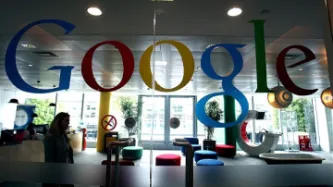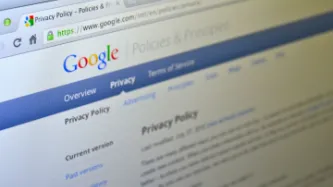Advanced Search
Content Type: Examples
To personalise the services it offers, Google retains user data such as search histories and as well as the Internet Protocol (IP) addresses and other digital identifiers that enable the company to link search queries to the specific computer where they were generated. Until March 2007, the company kept this data indefinitely. At that point, it announced that in response to privacy advocates' concerns it would begin anonymising the data after 18 to 24 months. While some welcomed the change,…
Content Type: Examples
Princeton University's WebTap - Web Transparency and Accountability - project conducts a monthly automated census of 1 million websites to measure tracking and privacy. The census detects and measures many or most of the known privacy violations researchers have found in the past: circumvention of cookie blocking, leakage of personally identifiable information to third parties, Canvas fingerprinting, and many more. The research also examines the effect of browser privacy tools and cookie…
Content Type: Examples
A report for the US National Academy of Sciences explains the methods used by a team of computer scientists to derive accurate, neighbourhood-level estimates of the racial, economic, and political characteristics of 200 US cities using the images collected by Google Street View in 2013 and 2014. The key element: the pictures captured of 22 million cars parked along or driving down those streets. The scientists trained a computer algorithm to recognise the make, model, and year of each…
Content Type: Examples
Some of the Google Home Mini units distributed before release to the tech press and at "Made By Google" events had a defective touch panel. The devices were meant to turn on recording only when the owner woke it up with "OK, Google" or applied a long press to the centre of the touch panels. Instead, the defect meant that the devices turned on recording thousands of times a day and attempted to respond to random noises rather than waiting for the "OK, Google" prompt or long press. The problem…
Content Type: Examples
As speech recognition and language-processing software continue to improve, the potential exists for digital personal assistants - Apple's Siri, Amazon's Alexa, and Google Assistant - to amass deeper profiles of customers than has ever been possible before. A new level of competition arrived in 2016, when Google launched its Home wireless speaker into a market that already included the Amazon Echo, launched in 2014. It remained unclear how much people would use these assistants and how these…
Content Type: Examples
The price of using voice search is that Google records many of the conversations that take place in their presence. Users wishing to understand what Google has captured can do so by accessing the portal the company introduced in 2015. Their personal history pages on the site include both a page showing activity on the web and a separate specific audio page that lists the captured recordings. The information made available there includes when and how by what device or app the sound was recorded…
Content Type: Examples
In 2016, Facebook and Google began introducing ways to measure the effectiveness of online ads by linking them to offline sales and in-store visits. Facebook's measurement tools are intended to allow stores to see how many people visit in person after seeing a Facebook campaign, and the company offered real-time updates and ad optimisation. Facebook noted that information will only be collected from people who have turned on location services on their phones. The company also offered an Offline…
Content Type: Examples
In 2012, London Royal Free, Barnet, and Chase Farm hospitals agreed to provide Google's DeepMind subsidiary with access to an estimated 1.6 million NHS patient records, including full names and medical histories. The company claimed the information, which would remain encrypted so that employees could not identify individual patients, would be used to develop a system for flagging patients at risk of acute kidney injuries, a major reason why people need emergency care. Privacy campaigners…
Content Type: Examples
In April 2016, Google's Nest subsidiary announced it would drop support for Revolv, a rival smart home start-up the company bought in 2014. After that, the company said, the thermostats would cease functioning entirely because they relied on connecting to a central server and had no local-only mode. The decision elicited angry online responses from Revolv owners, who criticised the company for arbitrarily turning off devices that they had purchased. The story also raised wider concerns about…
Content Type: Press release
Britain’s top counter-terrorism official has been forced to reveal a secret Government policy justifying the mass surveillance of every Facebook, Twitter, Youtube and Google user in the UK.
This disturbing policy was made public due to a legal challenge brought by Privacy International, Liberty, Amnesty International, the American Civil Liberties Union, Pakistani organisation Bytes for All, and five other national civil liberties organisations[fn]Canadian Civil Liberties…
Content Type: Press release
Google's latest Transparency Report, released at 3pm GMT this afternoon, shows that requests by European governments for the browsing history, email communications, documents and IP addresses of Google's users have skyrocketed since the Transparency Report was launched three years ago. Countries in the European Union made 7,254 requests about 9,240 users or accounts between July and December 2012, averaging over 1,200 requests a month. This represents over a third of all requests made by…
Content Type: News & Analysis
Tuesday’s letter to Google CEO Larry Page, personally signed by 29 European data protection authorities, ordered the corporation (inter alia) to give users greater control over their personal information. The notions of trust and control are emphasised throughout the letter, and Google is urged to "…develop new tools to give users more control over their personal data" and "collect explicit consent for the combination of data for certain purposes". It is good news that the…
Content Type: News & Analysis
Last month, within thirty seconds of the BBC publishing a quotation from me on the latest round of the nymwars and Google+, my phone rang. Caller ID indicated that it was someone I know who works at Google. "Had I said something wrong?" was my first thought. I quickly retraced in my mind what it was that I had said to the journalist; I had responded in the article that Google's recent announcement could be seen as positive but really it was a sidestepping of the larger challenge of identity…
Content Type: News & Analysis
Independent security researcher Trevor Eckhart revealed yesterday that a recent software update to some HTC smartphones has accidentally given third party applications access to huge amounts of private data, including call logs, geolocation history, SMS data and a whole lot more.
The update surreptitiously installs a suite of applications logging users' interactions with their devices. When a device is first switched on, the user ostensibly has the option not to allow HTC to…
Content Type: News & Analysis
For the past couple of months we have been discussing with Google their transparency plans regarding governments accessing data held by Google. Last week Google released initial data on how many requests for data were coming from which governments.
We congratulate Google on this first step, and we believe that by seeking answers to some additional questions, greater clarity may yet emerge. Of course we have many more questions. We hope that this is the first step in an ongoing dialogue with…
Content Type: Press release
The global watchdog Privacy International has today simultaneously filed complaints against Google's controversial Gmail service with privacy regulators in sixteen countries.
The move creates Google's biggest challenge yet in the short but turbulent public debate over its new email service.
Complaints have been filed with the privacy and data protection regulators of France, Germany, the Netherlands, Greece, Italy, Spain, Czech Republic, Belgium, Denmark, Sweden, Ireland, Portugal, Poland,…











